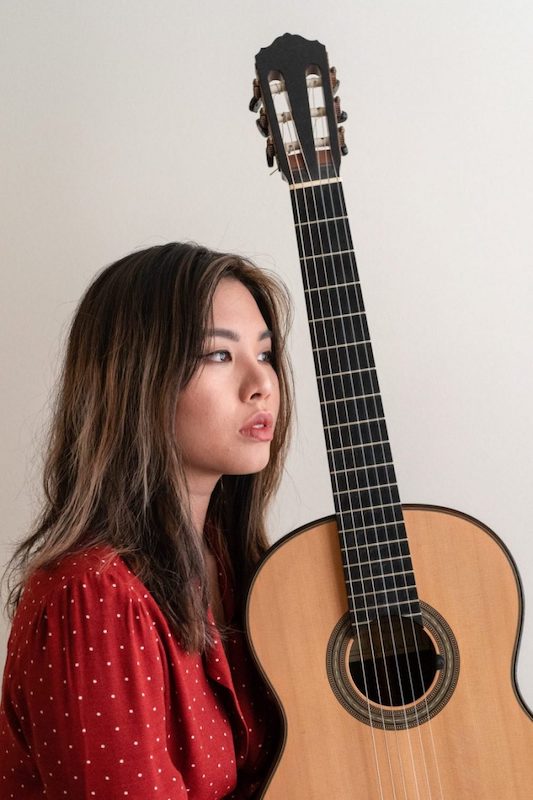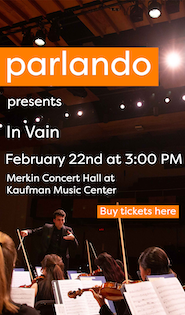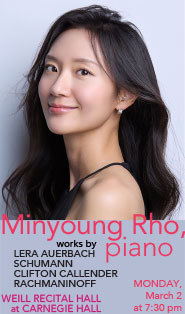Purrington premiere, Barton’s Ives vie with rough playing in ACO program

American Composers Orchestra plays an important role in the musical life of New York: they do admirable work in promoting American music, not only through important new commissions, but through performance of works by American composers who have long been left out of the standard repertoire even in their native country.
The trouble is, the ACO is a sorely unpolished ensemble, especially in their strings, which sound anemic and struggle with their tuning. The hour-long program that music director George Manahan led in Zankel Hall on Wednesday night featured a rich selection of works new and old, but felt limited by the shortcomings of the orchestra.
Those shortcomings were most apparent in Matthew Aucoin’s Evidence (2016). Organized into three continuous, untitled movements, Aucoin’s piece, as the composer explained from the stage, draws inspiration from the idea of a journey over water: indeed, a strong gale is audible in the middle movement, where the full orchestra is thrown into turmoil.
Even more effective, though, is the opening, where the strings trace out arching chords while a single voice in the woodwinds carries a simple melody to push the entire composition forward. At times, Aucoin’s writing is expansive, growing to almost Romantic dimensions, but unfortunately ACO could not achieve the fullness of sound necessary to make these moments resonate.
But in spite of the orchestra’s weaknesses, the program they presented was compelling. The main attraction for many attendees was likely the performance of five songs by Charles Ives with super-star mezzo-soprano Jamie Barton. Booking an artist of Barton’s stature is quite a coup for ACO, and for the occasion they commissioned orchestrations by different composers for all five of the songs she selected.
Barton’s Ives set opened with the two-part song “Memories.” In its first section, “Very Pleasant,” she showed an innocent glee in her anticipation of an opera performance, running short of breath as she pushed towards the end of long, rapid phrases. Her singing captivated in the warm reminiscences of the “Rather Sad” memories, showing a rich, softly pulsing caramel tone over a dreamy reverie orchestrated with jingling percussion by Hilary Purrington. “The Cage,” which passes by in the blink of an eye, got a film-noir treatment from Jonathan Bailey Holland, opening with a brassy sting.
Hannah Lash crafted a rich, string-heavy orchestration for “Immortality,” using brass as a dramatic tool to inject darkness into the sound. The fullness of the accompaniment here was a worthy match to the vocal line, which showcased the magnificent heft and vivid color of Barton’s voice. “The Housatonic at Stockbridge”, another Holland orchestration, portrays the river with hushed strings freshened by high piano chords, creeping, winding, and growing harsher as it gathers strength downstream. In “Autumn,” Barton found a serene calm in her low voice, while Lash’s lush orchestration demanded more warmth than the ACO strings could give.
The last item of the night was an ACO commission, Harp of Nerves, Purrington’s concerto for guitar and orchestra. Purrington wrote the piece for her close friend, a guitarist who goes by the name JIJI, who gave a virtuosic performance in the world premiere.
The concerto opens with a burst of air, lingering as a cold whisper of strings while the guitar plays a haunting pedal tone. Purrington shows a playful spirit in the interweaving of the orchestra’s many voices, setting up a lively conversation between the plucking strings and marimba.
In the second movement (as with Evidence, all three are untitled), the violins open with a wash of soft light, sustaining a long, high note at the start. Purrington writes a more lyrical, plaintive line for the guitar here, setting it over an airy and sparkling accompaniment. The last movement features syncopated rhythms, moving from a dull pounding of timpani into a sustained section of only percussive sounds: the guitar, backed by pizzicato, xylophone, wood blocks, and even short chirping from the winds.
For all her inventiveness in orchestration, Purrington’s most moving writing was found in the beautiful, pensive cadenza for guitar that comes near the end of the concerto. Here, JIJI had a chance to demonstrate her virtuosity in an extended, expressive monologue that gave the piece a strong closing statement.

